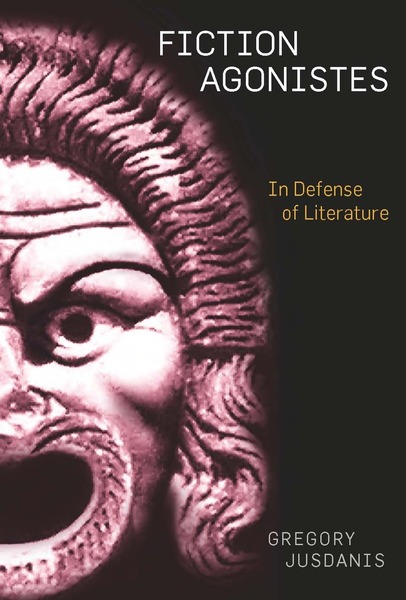
2010
168 pages.
from $24.00
Paperback now $12.00 (50% off)
Hardcover ISBN: 9780804768757
Paperback ISBN: 9780804768764
Ebook ISBN: 9780804773768
In this path-breaking new work, Gregory Jusdanis asks why literature matters. Why are we afraid to admit our pleasures of reading, to defend the arts to the school board, to discuss the importance of literature in life? Drawing on a wealth of references from Aristophanes to Eudora Welty, from Fernando Pessoa to Orhan Pamuk, from Cavafy to hypertext stories, Jusdanis reminds us that the arts have always been under attack. Instead of despair, however, he offers a pragmatic defense of literature, arguing that it performs a social function in dramatizing the break between illusion and reality, life and the life-like, permanence and metamorphosis. The ability to distinguish between the actual and the imaginary is essential to human beings. Our capacity to imagine something new, to project ourselves into the mind of another person, and to fight for a new world is based on this distinction. Literature allows us to imagine alternate possibilities of human relationships and political institutions, even in the watery world of the Internet. At once daring and lucid, Fiction Agonistes considers the place of art today with passion and optimism.
About the author
Gregory Jusdanis is Distinguished Humanities Professor at The Ohio State University. He is the author of The Necessary Nation (2001), Belated Modernity and Aesthetic Culture: Inventing National Literature(1991) and The Poetics of Cavafy: Textuality, Eroticism, History (1987).
"[Jusdanis] displays a wonderfully encyclopedic knowledge of criticism and literature from the ancient Greeks to contemporary postmodern and post-structuralist writers . . . Jusdanis has laid forth a provocative and interesting reflection on the current state of literature and its place in the world . . . [F]or anyone interested in the art of letters, [Fiction Agonistes is] a worthwhile read."
—Emily Manuel, Global Comment
"All in all, Jusdanis' insightful study offers a thought-provoking and important contribution to the debate on why literature matters. One of the strengths of the book lies in his lucid disentanglement of various conceptions subsumed under the slogan of art's death and his subsequent knowledgeable interrogation of these in light of the parabatic. His insightful observations invite further research as a wealth of other literary examples come to mind which could also be drawn on to substantiate his theses."
—Stella Butter, Journal of Literary Theory
"In this well-written book Jusdanis defends art and literature in ways relevant to our own time. He takes into account the theoretical discussions of the last thirty years as well as our new social realities . . . Jusdanis does not hesitate either to take on large subjects or go against the current."
—Dimitris Tziovas, The Athens Review of Books
"Fiction Agonistes is a formidable work: wide-ranging, erudite, and incisive in its entire range of argument. It represents a powerful effort to think through the issues that have surrounded the academic debate about the study of literature and to arrive at a full understanding of its centrality to the institutional processes of human life, and most especially to the reflective consciousness upon which any form of civilized life must depend."
—F. Abiola Irele, Harvard University
"I read Fiction Agonistes with a sense of excitement and deep pleasure. Here is a critic engaged with issues of importance to any thinking person. Gregory Jusdanis asks hard questions: Does literature matter? If so, why? He reaches back to the Greeks (and others, such as Kant and Schiller) to find answers, and they are thrilling ones. Art, broadly defined, attends those boundaries between real and the imagined worlds, between matter and mind, body and soul. Our imagined worlds profoundly affect our real ones, affording opportunities to change realities in significant ways. Indeed, art—literature, in particular—enables social transformation itself. This is a wide-ranging and engaging study that strikes countless sparks, and I cannot imagine a more useful or important book for our times."
—Jay Parini, poet, novelist, critic, and author of Why Poetry Matters (2008)
"This is a wide-ranging and engaging study that strikes countless sparks, and I cannot imagine a more useful or important book for our times. Jusdanis asks hard questions: Does literature matter? If so, why? He reaches back to the Greeks (and others, such as Kant and Schiller) to find answers, and they are thrilling ones. Art attends those boundaries between real and imagined, matter and mind, body and soul. Our imagined worlds profoundly affect our real ones, affording opportunities to change realities in significant ways. Indeed, art—literature, in particular—enables social transformation itself."
—Jay Parini, poet, novelist, critic, and author of Why Poetry Matters (2008)